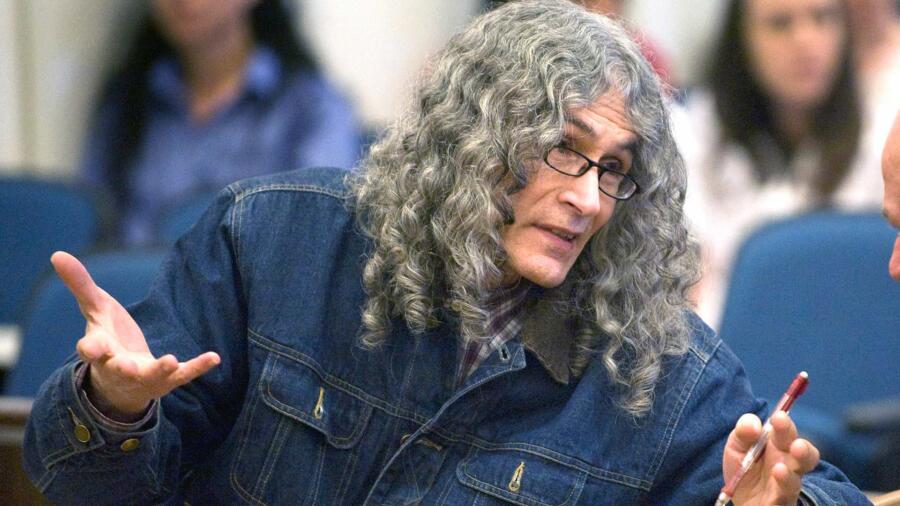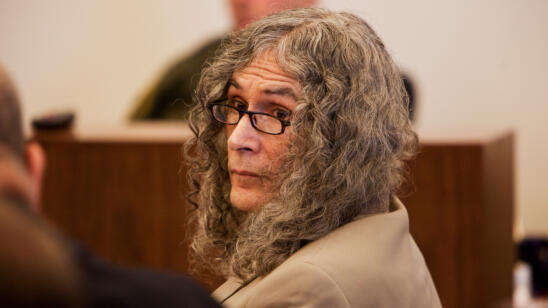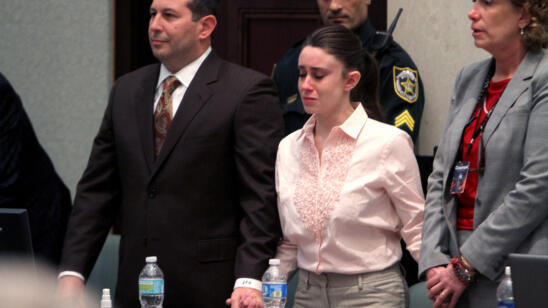Rodney Alcala is known as “The Dating Game Killer,” yet he’s far from the only killer, or even serial killer, to go on a game show. Here’s why Alcala and other murderers—and in some cases, alleged murderers—wanted to compete on television.
Rodney Alcala on The Dating Game
When Rodney Alcala went on The Dating Game in 1978, he’d already brutally murdered at least four women, and had served time for sexually assaulting an 8-year-old girl. Why would Alcala want the public to see him on a popular game show?
“When we’re talking about a serial killer, we’re usually talking about a psychopath,” Rod Hoevet, a forensic and clinical psychologist, tells A&E True Crime. “They have this narcissistic core. They believe that they are God’s gift to humanity. Of course they would want to be on a game show. Nothing would ever be off-limits.”
[Stream Killer Cases in the A&E app.]
“I think [Alcala] would have gotten a thrill out of not only trying to get the girl, but also duping the public,” Joni Johnston, a forensic psychologist and author, tells A&E True Crime. “Knowing what he’s doing [in his murders] and at the same time posing as this all-American guy who’s looking for love.”
Alcala’s double entendres during the game show’s interview questions managed to charm bachelorette Cheryl Bradshaw into picking him as her date, but she decided not to go through with the encounter after meeting him.
Alcala was ultimately convicted of seven murders, though investigators and prosecutors theorize he may have taken more than 100 lives.
John Cooper on Bullseye
John Cooper, from Wales, appeared on the British game show Bullseye in 1989, after he’d murdered two siblings in 1985. Following his loss on the game show, the serial killer murdered a couple while they were on vacation.
As with Alcala, the risks of being seen on television didn’t deter Cooper. “The only thing malignant narcissists ever think is, I’m the smartest. I’m going to get away with this. And even if they catch me, I’ll talk myself out of it,” says Hoevet.
Cooper served 10 years for burglary, starting in 1998. However, he got away with the murders until 2009, when police arrested him.
Authorities made their case thanks in part to Bullseye. A still of Cooper’s appearance on the show matched a police sketch from 1989. Cooper also said on the show that he was very familiar with Pembrokeshire—the area where he killed some of his victims.
Cooper was convicted of four murders in 2011.
Edward Wayne Edwards on To Tell The Truth
In his 1972 memoir, Metamorphosis of a Criminal, convicted criminal Edward Wayne Edwards explained why he didn’t wear masks during his robberies: “I was Ed Edwards, master crook! And I wanted the world to know it.”
Ahead of his book release and subsequent career as a speaker on prison reform, Edwards had served time in prison for armed robberies and unlawful interstate flight to avoid confinement. He had even been added to the FBI’s 10 Most Wanted list before he was captured in 1962. He was released on parole in 1967.
In 1972, the same year as his book release, Edwards was featured on an episode of To Tell the Truth. On the show, a celebrity panel had to decide which of three contestants was really convicted felon Edwards.
Having seen Edwards’ appearance on the show, Johnston tells A&E True Crime, “This was a guy who’s good at being whatever he wants to be, and whoever he thinks you need him to be. I can see him loving being on [the show].”
Johnston adds, “He was talking about how he turned his life around. I think he used that as a way to make money and to gain notoriety more than I think he genuinely changed.”
Although Edwards went back to a life of crime—serving time for arson in the 1980s—no one knew he was a murderer until his daughter contacted authorities about her father’s possible involvement in the 1980 deaths of two teenagers.
Police arrested Edwards in July 2009. He soon confessed to five killings: the 1980 murders, the murder of a couple in 1977 and the 1996 murder of his foster son.
Reality Show Star and Suspected Killer: Ryan Jenkins
Real estate developer Ryan Jenkins became a prime suspect in the murder of his wife, model Jasmine Fiore, after her body was found in a dumpster in Buena Park, California, on August 15, 2009. Her teeth and fingers were missing, so authorities had to use her breast implants to identify her.
The delay in identifying Fiore gave Jenkins time to flee to Canada, where he died by suicide. Authorities found his body on August 23, 2009.
Prior to Fiore’s death, Jenkins was a contestant on two competitive reality shows. On Megan Wants a Millionaire, he vied with other well-to-do men to woo model Megan Hauserman. Hauserman liked Jenkins, but selected another man as the winner.
Soon after production finished, Jenkins met Fiore in Las Vegas, where they quickly tied the knot in March 2009. The co-founder of the production company that made Megan Wants a Millionaire said of Jenkins’ marriage, “I think that was him trying to win the show in the end.”
“When you marry somebody you haven’t known very long, you’re marrying a fantasy,” says Johnston. “Which shows he’s looking for validation more than knowing a real person.”
Johnston says she believes Jenkins was a “guy who [was], deep down, incredibly insecure, and needing constant approval.”
Jenkins competed on the reality show I Love Money 3 after getting married. During production, he constantly phoned his wife to check on her whereabouts. After Fiore’s death, police found letters from Jenkins detailing his jealousy and possessiveness.
Jenkins’ original background check missed his 2007 conviction for domestic assault in his home country of Canada.
Timothy W. Bliefnick on Family Fued
In 2019, Timothy “Tim” W. Bliefnick competed on an episode of Family Feud. Although his wife, Rebecca “Becky” Bliefnick, wasn’t one of the family members teaming up with him, she was mentioned on the show. At one point in the game, host Steve Harvey asked Tim, “…We talked to 100 married people. What’s the biggest mistake you made at your wedding?”
Tim responded, “Honey, I love you, but…said ‘I do.'”
Harvey and the studio audience were taken aback. Tim responded, “I’m going to get in trouble for that, aren’t I?”
The Bliefnicks were still together when the episode aired in 2020, but Tim filed for divorce in January 2021. The process was contentious.
On February 23, 2023, a week before their divorce trial was set to start, Becky’s father found her murdered in her home.
Police arrested Tim on March 13. His trial began on May 23, 2023, and he was found guilty a week later.
On August 11, 2023, Tim received three life sentences with no possibility of parole on two counts of first-degree murder and one conviction for home invasion.
[Stream an episode of Killer Cases about the Bliefnick murder in the A&E app.]
Tim Bliefnick “was obviously not above violence,” says Hoevet.
There are other game show-related killers.
A California man, Paul Curry, won thousands of dollars on Jeopardy! in the 1980s. His intelligence also helped him get away with killing his wife, Linda, via nicotine poisoning in 1994. Police didn’t have enough evidence to arrest him until 2010, and he wasn’t convicted of Linda’s murder until 2014. And a Florida man was convicted in 2023 for killing his wife because she wouldn’t compete on a reality show with him.
Of course, Johnston notes, “There’s nothing wrong with wanting to be on a reality show or a competitive [game] show. A lot of very normal people who would never hurt a fly are interested in that.”
“But it can attract people at the very extreme ends of narcissism,” Johnson adds. “If you have somebody who is criminal or pathological, that’s problematic.”
Related Features:
Who Were Rodney Alcala’s Confirmed Murder Victims?
How Rodney Alcala, ‘The Dating Game Killer,’ Used Photography to Lure Victims


